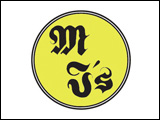This week, March 7 – 13th is Health Ethics Week in Manitoba. The theme set for the week by the Provincial Health Ethics Network is “Doing the right thing – Doing the thing right”. This theme recognizes there is a relationship between doing the right thing (acting ethically) and doing the thing right (following rules, codes, policies and laws). Here in South Eastman Health we have been inviting our staff to think about a different situation each week in February along the lines of this theme and they have been responding to me sharing some of their thoughts around the bind this reality sometimes puts them in.
Ethics is a funny thing. Why? Because sometimes a thing is ethically, morally and legally right, and no conflict exists between these three. But at other times a thing can be ethically right, morally right but legally wrong or some other combinations of the three, creating conflict for those who are aware.
Here’s an example we may all be able to connect with quickly. A Christian physician is approached by a patient he has cared for since her birth, she is now 35. This woman, who does not embrace the Christian Faith, went on vacation three months ago, got intoxicated at a club and had sexual relations with a stranger and is now expecting a child. She has come to her physician requesting an abortion.
The doctor’s personal ethics would not permit him to perform the procedure but his professional ethics require him to refer her to a specialist who performs abortions. Legally, the woman has the right to have the abortion. Morally, the woman has no problems and is not at all conflicted over this decision, yet morally her physician believes that abortion is the murder of a defenseless human being.
This scenario is easy to understand, for the conflict between ethics, morality and the law and abortion have been argued in Canada since before abortion was legalized. Yet there are many other situations that arise regularly in the provision of health care in our Province that trigger the same dynamics. In this article I am going to present a common scenario that we can all relate to that creates this conflict between what one might believe to be ethically, morally and legally right or wrong. At the end of the scenario I will provide several options. If you want, I invite your response, either by phone or by email. In a later article I’ll share the results of this ethics, vs. morality vs. the law survey.
Here’s the situation:
Sally Q. Public was at the hospital one day visiting her ailing mother. At one point the nursing staff needed a few minutes to care for her mom so she stepped out into the hall adjacent to the nursing station. As she stood there, not really intending to overhear a conversation, she heard one nurse talking to another nurse about Mrs. Private Citizen, the mother of a dear friend of hers. Just that morning the two daughters had been talking about their mothers both being in the hospital and some of the anxieties they had about the developments that were changing the way each of their mother’s lives would go from here on out. These two daughters had been the dearest of friends for thirty years, they were closer to each other than they were to their own siblings and had supported each other through thick and thin all these years. Sally Q. Public overheard that Mrs. Private Citizen had just been diagnosed with Pancreatic Cancer and she wasn’t expected to live. Sally knew her friend did not know this, as her friend’s older brother was the power of attorney and health care proxy and the two didn’t get along. Sally’s friend often commented on how hurt she was that she was kept in the dark by her older brother when it came to her Mom’s health. Sally felt an obligation to share the information with her friend, but also knew that it was information that she should have never heard. What should Sally do?
Is it ethical for Sally to share the information with her dear friend?
Is it moral for Sally to share the information with her dear friend?
Is it legal for her to share the information with her dear friend?
Alternation #1 – Sally should talk to her friend, share with her the information, how she heard it and support her friend as she processed this tragic development.
Alternative #2 – Sally should say nothing and when her friend finally learns of the development and shares it with her; she should act as if it is news to her and support her friend at that time.
What would you do?
I rarely invite a response to my articles, but this article I would love a response. If you would be willing to share your opinion on whether Sally should chose Alternative #1 or Alternative #2, please let me know either by calling my private office phone (346-5166) and leaving me a message or by emailing me at lhirst@sehealth.mb.ca and sharing with me which alternative you would choose. If you would like to leave a brief comment as to why you would make that choice, I’d love to hear this as well.
Well, we who are a part of the South Eastman health/ Santè Sud-Est inc. really work hard to make decisions that are at the same time, ethical, moral and legal. When these come into conflict, we seek to deal with the conflict in a way that resolves the conflict. Sometimes those conflicts results ultimately in a change of policy. Other times these situations result in people rethinking their own values and commitments in the context of the ethics, morality and legality of the situation. It is not easy but an important part of the dynamics of caring for the health needs of our community. Thanks for your continued support.
Chaplain's Corner was written by Bethesda Place now retired chaplain Larry Hirst. The views and opinions expressed in this blog are solely that of the writer and do not represent the views or opinions of people, institutions or organizations that the writer may have been associated with professionally.



